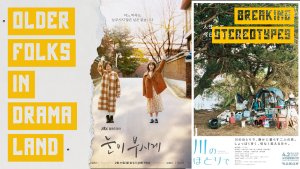 Breaking Stereotypes: Older Folks in Dramaland
Breaking Stereotypes: Older Folks in Dramaland
This article can be viewed in either dark or light mode.
It’s been a long time since a Taiwanese drama tickled my fancy and Rainless Love in a Godless Land has done all that and more. Firstly it ticks all the right boxes in terms of popular genres namely: mystery, romance and fantasy. And having the fantasy immersed in mythology and tribal culture is the icing on a cake for an aficionado of mythology and folk tales like me.
The story might remind K-drama fans of Goblin or Doom at Your Service and many more C-dramas, where a God falls for a mortal but A Rainless Love… is so much more. With a screenwriter of Taiwanese hit Someday or One Day, new director Hong Zi Peng, production by Sanfeng and a star studded cast, this is a big budget drama with an even bigger worldview. Based on animist mythology entrenched in old world values from Taiwan, this romance drama is also hinting at environmental issues albeit in a subtle manner.
Nature is slowly dying because of human interference and Kakarayan, the God of all things, has given up on the human race. He orders the Gods to abandon humanity and go back to heaven, and this is where we derive a part of the title a Godless Land.
While I really enjoyed the drama, the Amis mythology introduced at the beginning of each episode intrigued me even more. The stories are short like fables and each of them have a moral that lends a fantastic connection to what is happening in the drama. But before I share them with everyone here, let’s first understand who the Amis are.
The Amis or Ami, also known as Pangcah, are an indigenous Austronesian ethnic group. They are coastal people who seem to have settled down in Taiwan around 6,000 years ago. Though many Amis have since converted to Christianity the term ‘Kawas’ is still used to describe their spiritual beliefs. Kawas are divided into 6 groups: gods, ancestors, souls of living, spirits of living things, spirits of lifeless objects, and ghosts. |
The history of the Amis is a long and interesting topic but considering this is my very first article, I am going to restrain myself to the short tales narrated at the beginning of each episode and contemplate on their relevance to the drama storyline. Please keep in mind there might be minor spoilers as I try to tie the lore to the drama. If you don’t want to see the spoilers you can just read the tales which are written in the boxes.
So with no further ado, let’s get into the island lore!
Ep 1: A TALE OF ORIGINS
The first tale we are told, describes the origins of “Kawas” and what it means to the Amis. The narration immediately immerses us into a world which is pleasantly not ‘Godless’. Not yet anyway!
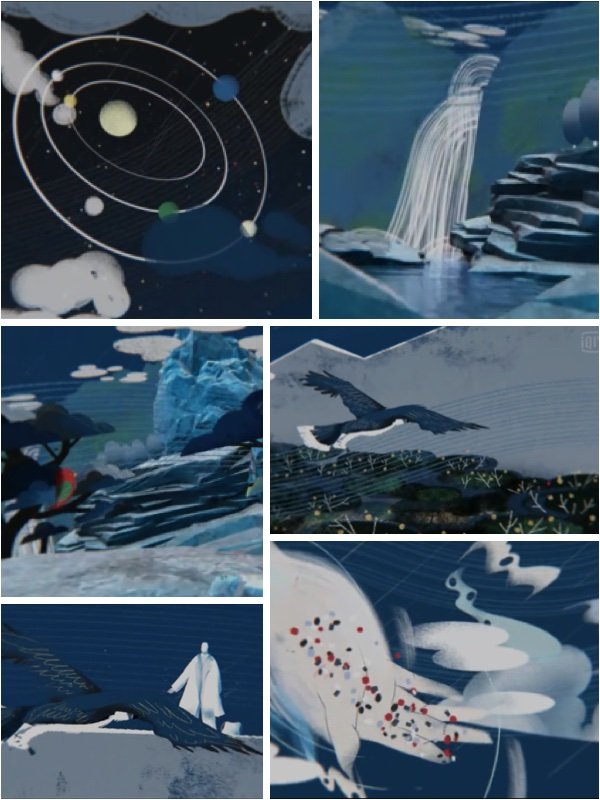 | A long time ago, there was an all powerful creator. In a world of nothingness, He created a powerful land according to the beautiful image He has seen in His dream. With that, He endowed the land with life, will and rules. Everything in the world, including us, was created by Him as well. Thus, the mountains, plants, air, minerals and earth became our parents and the birds, beasts, fish and insects became our brothers. These blessings, under His arrangement have protected us for generations. We call them Kawas or spirits. |
This tale ties in beautifully with the introduction of multiple Kawas in the episode. We also get acquainted with our mortal female lead and get a glimpse into the lives of most of the characters in the drama.
Ep 2: THE RAIN
The story of the rain in episode 2 is about Orad, the God of Rain and the creator’s messenger, but is also about doing good in life. Since, Kakarayan the God of all things is watching you in the reflection of time. Whether you are blessed by the Kawas or cursed, depends on how you live your life. | 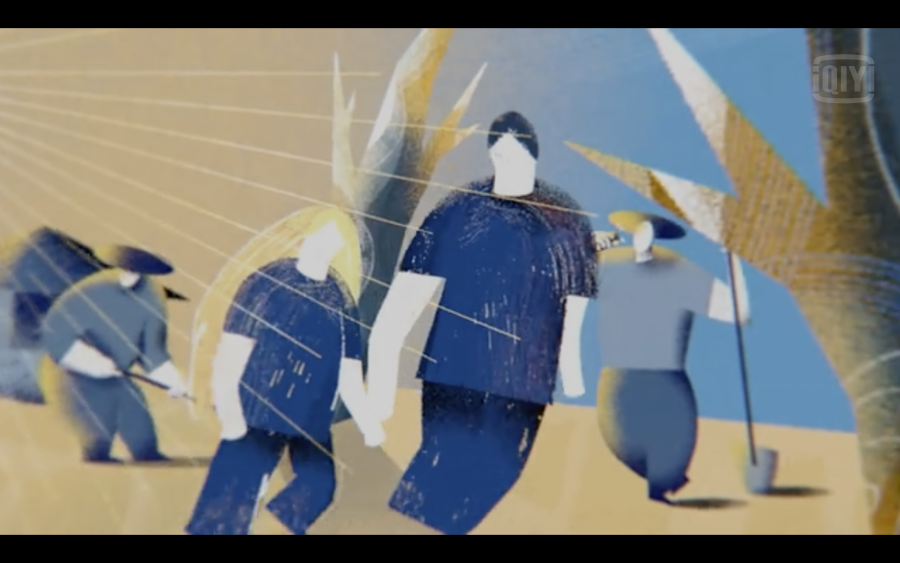 |
Once upon a time, there lived a pair of poor siblings. One year there was a drought in the village. Every household needed water. But spring water came surging out from the two siblings’ home. It was a ceaseless flow. When the villagers found out, they chased the siblings out of their tribe with resentment. The brother and sister left without a fight. They ran and ran along the coastline. Suddenly, there was a downpour. The flood submerged the whole tribe. However, the siblings got into a boat that they had prepared and survived. Floating along with the wind, they arrived at a fertile land called Palidaw. From then on, people regarded the rain as the Creator’s messenger bringing either blessings or misfortune to them. |
This tale is a harbinger of things to happen. It’s easy to practice superstition when someone else is the one who suffers. But if an entity approaches you and curses your fate saying it’s God’s will, will you accept it without questioning? Because that is exactly what our leads explore in this episode.
Ep 3: THE MEDIUM
Episode 3 sheds light on what Tian-Di’s (our main lead in the drama) grandmother’s role is in the tribe and maybe ruminate on her decision to send her granddaughter away.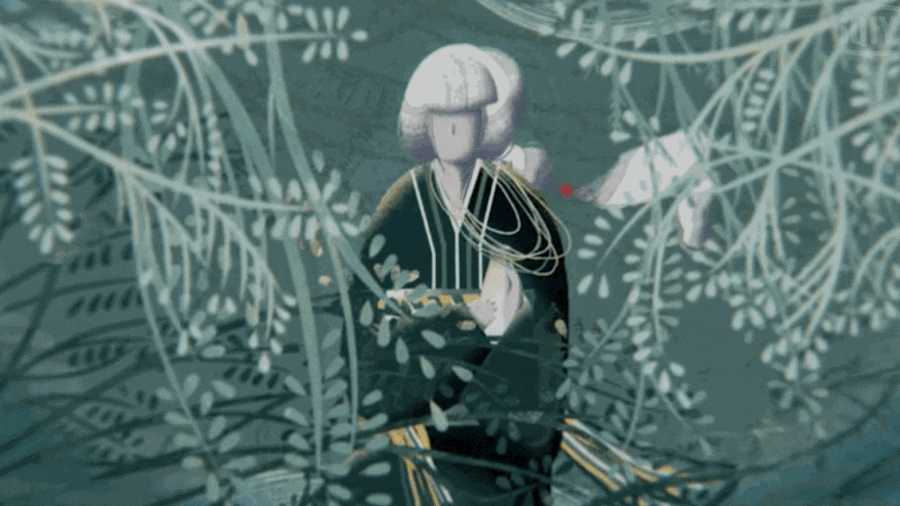
A Sikawasay or medium refers to someone blessed with the power of the gods. They are spirit bearers and the humans’ connection to the gods. By the guidance of the gods, Sikawasay help the people who are lost find the right way to the gods. They became mediums not because they chose to do so. Almost all the mediums experienced life threatening illness when they were young. Only when a spirit is willing to be their guardian angel can they become better. In return their path will be the one that God has walked on previously. |
Excuse me? So Mr. Narrator, what you mean to say is that a human has to get sick and a spirit has to make them better! Boy do we know somebody who has a Kawas following her around all the time!
Ep 4: ORAD HAS A DREAM
“Heaven has no rage like love to hatred turned,
Nor hell a fury like a woman scorned”
William Congreve clearly hit the jackpot with this line from his play ‘The Mourning Bride” (1697). I doubt any of us have read his play but I’m sure we all know the famously misquoted line ‘hell hath no fury like a woman scorned’ from it. The Amis also have a story illustrating the jealousy of a woman, a scorned God no less!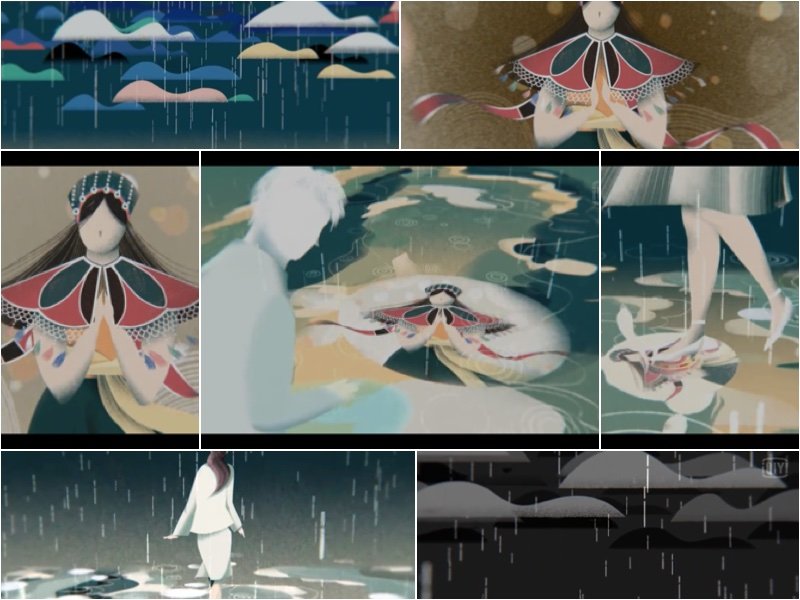
Clouds used to have colour. Orad descended from the coloured clouds giving blessings or bad luck to people through the reflection of time. One day in the reflection of time, Orad saw that he would meet someone in his dream. It was Tiyamacan, the Glowing Girl, and he would fall in love with her. Orad who never had a dream suddenly had one. In his dream, he met the Glowing Girl and fell deeply in love with her. Toem, the god of clouds, couldn’t accept her beloved Orad falling for another girl. So she entered Orad’s dream and killed the Glowing Girl. Since then, the clouds no longer have colour. Whenever the rain falls they will turn into dark clouds. |
The tale itself is self-explanatory. Now we understand Toem’s motivations and why she is such a pain! Her obsession with Tian-Di makes sense but wait, does this mean Tian-Di is the glowing girl?
Ep 5: A KAWAS FOR ALL THINGS
There is always a balance in nature. For you to appreciate the good you need to juxtapose it with the evil. To the pre-Christian Amis, Kawas was a multivalent word. The Amis used the concept of kawas to explain their physical and social world. For example: one’s success or failure, abilities and the like could be comprehended in terms of the concept of kawas. It is but natural then that we have good as well as evil kawas. In my opinion, the story in this episode perfectly embodies the form of storytelling that the Amis may have used to convey their knowledge - through word of mouth.
Narrator: Everything in this world including invisible sickness has its own kawas. I’ve also heard that there are kawas on everyone’s shoulders. The good kawas perches on the right shoulder while the evil kawas sits on the left shoulder. Little Girl: Are there evil kawas too? Narrator: Of course. For instance, your goddess of white-eye warbling bird, Cariwciw and my god of straw shoes Pacokapay, are good Kawas. Kawas that suffered an accidental death and were forgotten or hurt by humans may become resentful of them. Thus, they no longer wish to bless the humans. We call such Kawas as “Kariah” Little Girl: Sir, how will I know whether the Kawas I encountered is good or evil? Narrator: Don’t worry, Banai. You will find out! (A prolonged pause as the drama cuts into the story) |

Whew! That is one scary gif. Now imagine this happening in the drama!
Narrator: Banai, if you are really a Sikawasay, you will know for sure. It’s because when they look at you with those pair of red eyes, you will know that the Kariah has come. |
This tale was quite informative. We come to know that the little girl that has been gathering this knowledge from the start of this drama is none other than Banai - Tian Di’s grandmother and a Sikawasay. And there is a Kariah after her family!
Ep 6: THE TALE OF THE BLINKING GIRL
It’s easy to infer the reference that each tale will have to the drama as they tell the story in the beginning of each episode. But some tales take time to percolate into our brains and make us wonder, ‘how is this tale related to the drama?’.
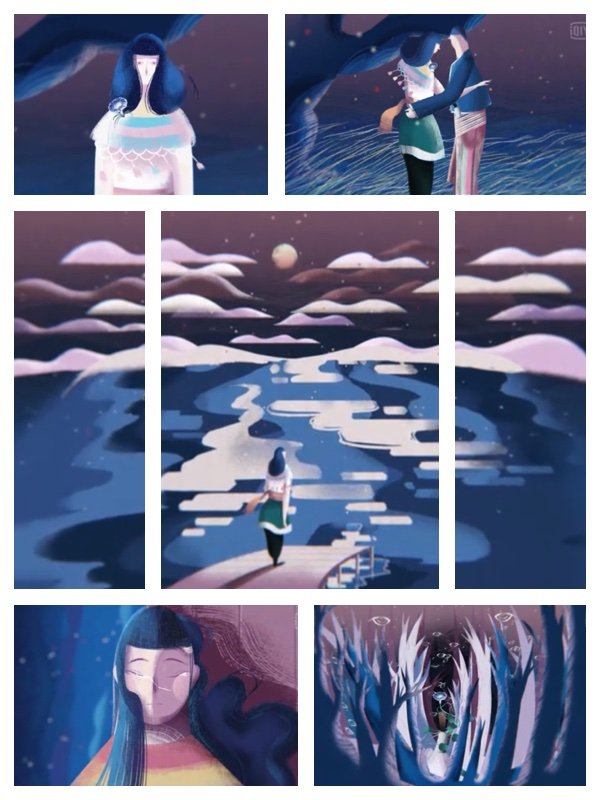 | Once upon a time, there was a Blinking Girl. Whenever someone lied to her, her eyes wouldn’t stop blinking. Later, the girl fell in love with a warrior from afar, but she didn’t have the patriarch’s support. So the warrior and the girl made a pact to meet at the lake and leave together. That night the girl waited at the lake for a long time but the warrior didn’t show up. “You got cheated. He isn’t coming!”, was what the patriarch told the girl. But the girl didn’t believe the patriarch and her eyes kept blinking. The warrior was gone and the girl died of a broken heart. Actually, the patriarch and the tribesmen had killed the warrior earlier that night. |
It turned out that the warrior hadn’t lied. Since then, the tribe has been cursed. Whenever someone lies, their eyes will never stop blinking. |
The Blinking Girl had my head scratching, cause almost everyone by episode 6 had told at least one lie and I don’t want to watch everyone rapidly blinking their eyes throughout the episode! :)
As the falsehoods pile up, we have reached half way through the drama. We know the main antagonists and who we think are the main protagonists. But, what do we really know? If people can be scheming and full of machinations just imagine the never ending complexity that a scheming God would bring to the table. After all it is only we who are constrained for time by our mortality, Gods have no such problem!
Ep 7: WHAT'S IN A NAME?
When Kakarayan first created the world, everything in nature had no name until the humans came along. Humans started naming each other in order to differentiate one another. At the same time names were given to everything in this world. Thus, flowers, trees, mountains, streams and birds got their names. Humans gave everything a name. But they never looked up to give a name to Kakarayan, the creator of all this. Kakarayan realised that he had not been given a name and he began shedding tears sadly. As the humans stared at the rain that kept falling, they gave it a name too. The creator found out that even his tears had been given a name. He, who still had no name, continued to cry in sorrow. It rained for months and months. That was when the humans started thinking, ‘where does the rain come from?’. Just then, a girl from the tribe pointed to the sky. The humans finally remembered that they needed a name for Kakarayan, the sky above them. Since then, the name of the sky has been ‘Kakarayan’. |
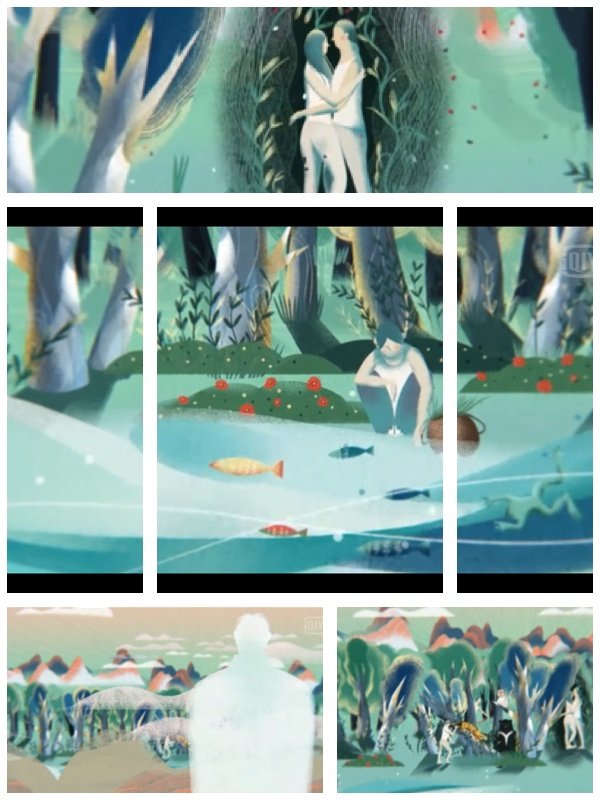
Is it so easy to forget the name of a person? And if you do, do you also forget the feelings that the person evoked? As Fali, the Wind God rightly says in this episode, ‘without experiences, a person’s feelings have no basis.’ But if Orad is no longer the God of Rain, then can he still be called Orad? Tian-Di certainly feels so.
Ep 8: THE TWO BROTHERS
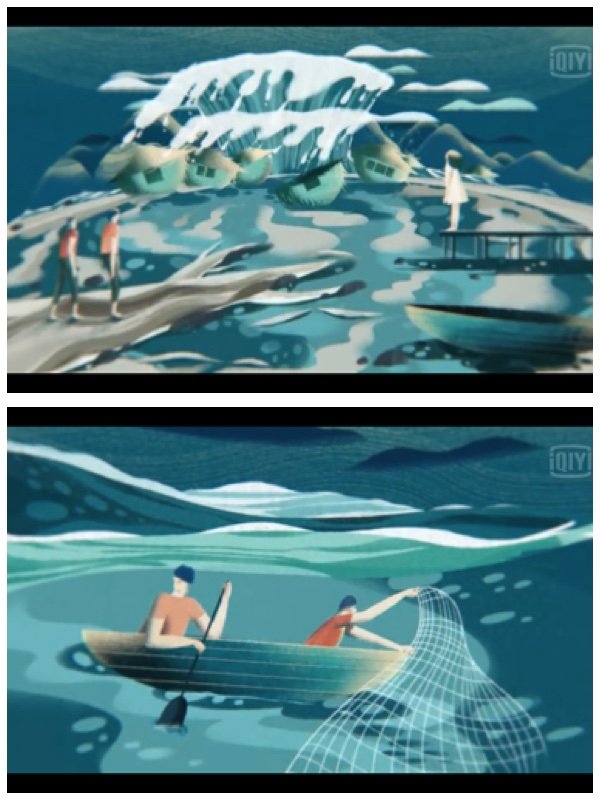 | A long time ago, there was a huge flood. It washed away the humans' lies and deceits, evils and wars. A lot of life was taken. When the flood came, two brothers happened to be fishing out on the sea. After they got back they found that the entire village had been submerged. The older brother tried to cheer his younger brother up. He said, ‘Far, far away, there is a big tree on Mount Kalalayan. The big tree is so tall that it seems to pierce through the sky to Kakarayan. Its roots hold the ground firmly while its leaves create an impenetrable canopy that can stop any storm.’ So the two brothers set out in order to live. They saved many people along the way. On their small fishing boats, they traveled in search of a tree that perched on Mount Kalalayan. The more people came onboard, the more the older brother felt guilty. |
Only when they saw the legendary 10,000 year old tree did he finally feel at ease. He confessed to the survivors that the huge old tree was a story he made up to deceive his younger brother. Unexpectedly, the tree started to wither instantly. As his lie got exposed, it vanished into the deluge. |
Here we have another tale about lies and their impact on life. I can get behind not telling lies but the brother is still in a dilemma. If he doesn’t tell, the tree might still exist but he will have to live with the guilt and not knowing if the tree is real or not. On the other hand, telling the truth was his best recourse but in the story it bit him back in the worst way. So is this a hint to what is going to happen? After a lie there is no point in regretting the past because nothing remains the same and nothing will get him back to the point where he could have not told the lie. It sounds depressing though and I feel like we are moving towards some big tragic revelation in the drama.
On a complete side note, I really liked something that one of the tertiary characters said in this episode, ‘The aim of conservation is not to save the environment but the people, because if the global temperature rises by six degrees the world might change but it would still exist unlike the humans, who will definitely perish.’ The environment referred to here is the natural environment, and the conscious and unconscious impact we have on it as humans is indeed some food for thought.
Ep 9: KAKARAYAN LOSES FAITH
Kakarayan created everything in this world and loved everything he has made. As time went by, year after year, humans started to think that they were as great as Kakarayan because of the favor that He blessed them with. One by one they slowly forgot who Kakarayan was. They had stained the rivers, polluted the oceans, hurt the mountains and cut down the trees. Because of humans, the world was no longer as wonderful as what Kakarayan had initially made. Kakarayan became upset because of humans’ ego and His unconditional love for humanity. So He told himself a lie. In that lie, there was a person who became His messenger. The messenger would travel the world in Kakarayan’s place to protect the world that He created on His behalf. |
There are so many things to unwrap from this tale. I mean this was building up for the past three episodes as all the tales were about the impact of lying and finally we come to know that even Kakarayan Himself told one. So what does this make Orad? And what exactly is happening with all the Kawas that are to return to heaven because Kakarayan said so? I wonder how many of the Kawas were aware of Kakarayan’s plans.
If it’s anything like the story of the tree on Mount Kalalayan, everything is going to disappear from the world as if the Kawas never existed. Makes one worry for Banai and Tian Di. What will happen to them now? And what will happen to the world if there is no rain?
Ep 10: THE TALE OF THE DISAPPEARING GIRL
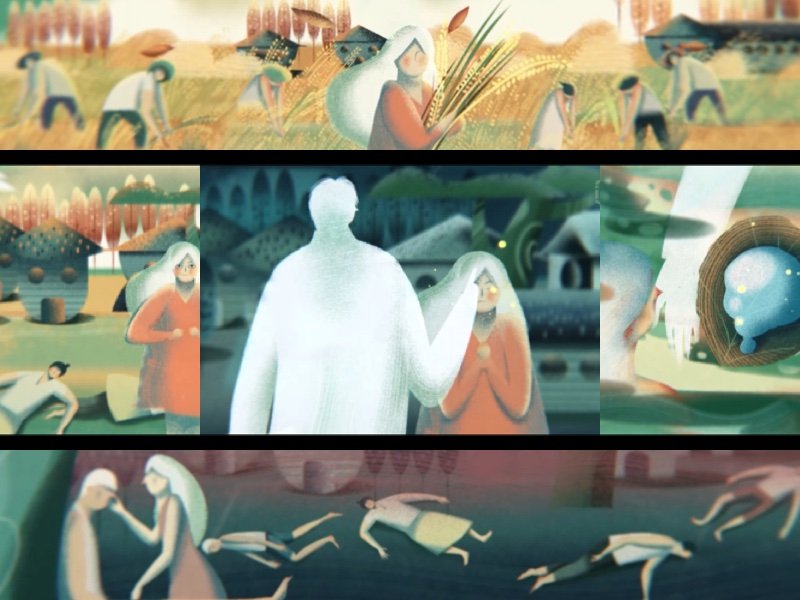
A beautiful girl was born in the fall of a great harvest. Her parents named her Widawidan to commemorate the God of harvest. When she was 14, a plague ravaged the village. In order to save the village, Widawidan made a wish to Kakarayan. Therefore, Widawidan met Kakarayan in her dream that night. In her dream Kakarayan used lotus leaves to hold water for her to drink. The next morning the villagers who were sick started to recover even without taking any medicine. But as the villagers recovered one by one Widawidan became haggard day by day. Then the spring came and the plague worsened. The number of recovering villagers couldn’t keep up with the ones who were dying. One night, someone saw Widawidan feeding her own blood to the sick villagers. They found out the secret behind the recovering villagers. The next day all the villagers who were infected had been cured but no one brought up the name Widawidan. It was as if the girl named Widawidan had never existed. |
After Kakarayan dreamt of a lie, I’m scared of what the future holds for our two leads. I don’t want anyone to disappear!
Favourite thoughts from Kakarayan in this episode (not word for word): you seek my help because to you i have everything and can do anything. But have you ever thought about this? If I have everything and can do anything, what can you offer me? and who have you really been sacrificing to, for obtaining my favour?
Toem shines in this episode. She is one mysterious God!
As I mentioned earlier every tale in this drama is leading us, the viewers into a different land. A land of Gods and lore. And as I keep watching the episodes the beautiful pictures and storytelling have captured my heart. So, this article is my attempt at capturing these tiny tales and recording them for later analysis. There are still 3 more episodes left but as I watch further, each tale feels like a big spoiler in itself. And who knows? Maybe when I complete this drama, these tales will tell a totally different story that I might have missed at the beginning.
Let me know your thoughts on these tales or if you knew about Amis mythology even before the release of this drama. Feel free to put a spoiler tag in your comment if you want to discuss your take on the story and I’ll be happy to reply. Hope you enjoyed reading. Cheers!
Disclaimer: The episode titles in this article are made up by me and are not the names of actual episodes in the drama.
Sources: 1. The feature image is a painting by Amis artist Yosifu and can be found here. 2. All pictures and gifs in this article are created by me based on individual episodes of IQIYI drama Rainless Love in a Godless Land. 3. Information regarding the Amis Tribe was captured from here and here. | Edited by: SumiTheCat (1st editor) |











